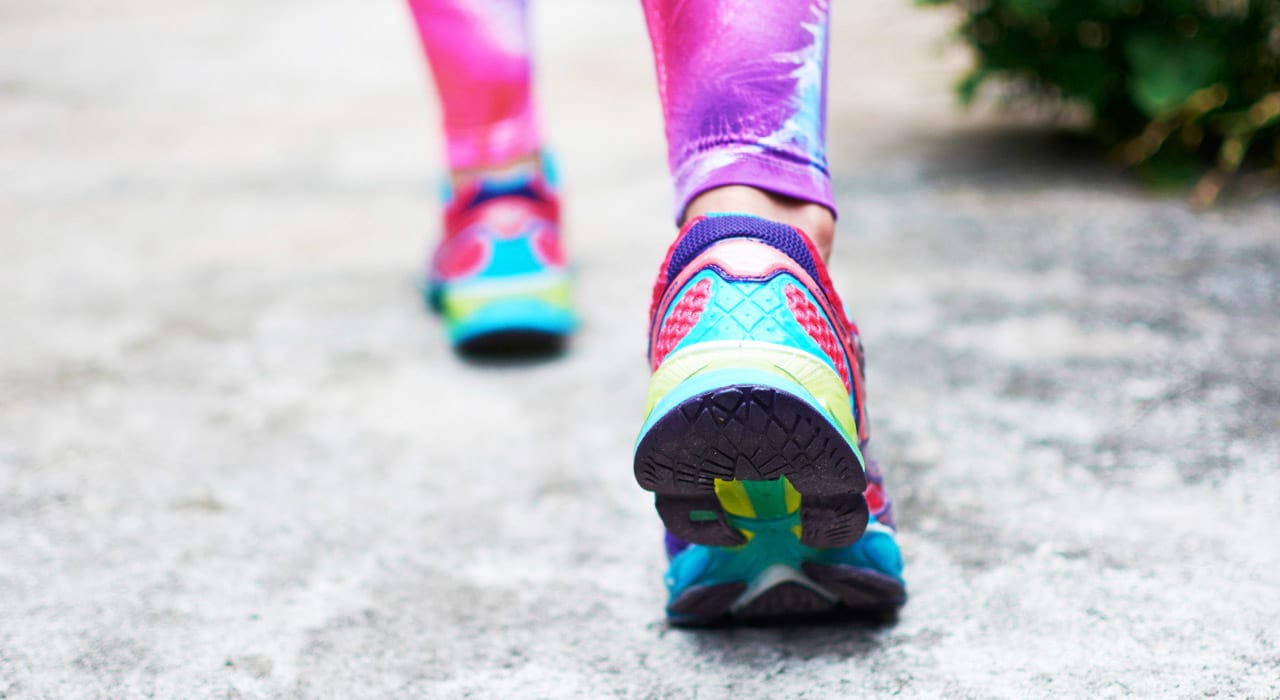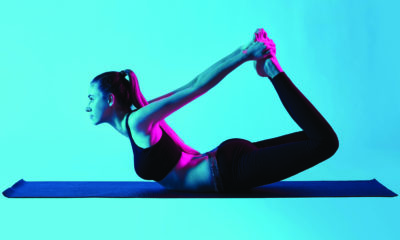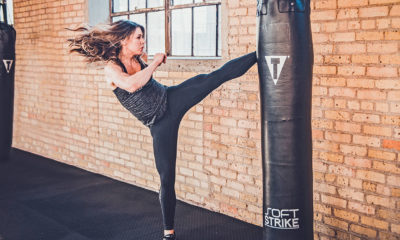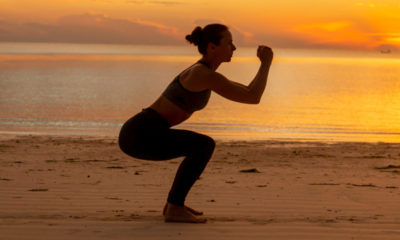Fitness
7 Reasons Why You Should Get Out And Go For A Walk
Walking is one of the easiest, cheapest and most effective ways to stay fit, so why isn’t it working for you? Simple, because you’re doing it wrong! Use this definitive guide to get the lowdown on walking workouts that’ll burn fat boost mood and protect your joints.
Here’s the deal: walk every day and you’ll experience all these crazy-good benefits – you won’t want to eat so much chocolate, your body will naturally store less fat, work will seem less stressful, you’ll feel more creative, smile more, have stronger joints and even live for around seven years longer.
You’re already tying up your trainers, right? But before you head out the door, read on. You may think you know how to walk already – after all, it’s one of the first things most of us learn to do after we’re done crawling – but here you’ll read about the surprising ways walking will do you good, as well as how to give your body the best walking workout there is.
1. It changes the way your body loses weight
Although it’s easy to think of weight loss as being about calories eaten and calories burned, it’s not that simple. There’s plenty of evidence that shows building muscle helps burn more fat over time. And there’s also evidence from Harvard University showing that walking every day actually transforms obesity promoting genes so that the effect they have on your weight loss or weight gain is halved. A few steps could, in fact, change your genetic code for the better.
2. You will crave sweet foods less
Strolling briskly for a few minutes is a tried and tested way to help nicotine addicts avoid reaching for another cigarette, but what about our addiction to sweet things? Turns out it’s great for that too.
Research from the University of Exeter, UK, found study participants who went for a 15-minute walk whenever they felt the need for chocolate or some other sweet treat found it far easier to say no. They also found the effects lasted beyond the walking period – participants reported that their cravings were reduced afterwards too.
3. Walking keeps you cold-free
Walking helps you sleep more deeply, improves circulation and strengthens your muscles, including your heart. As a result of all that, it also helps boost your immune system. In fact, research from the Appalachian State University, North Carolina, found that walking between 30 and 45 minutes a day actually increased the number of immune cells in the body.
4. It lowers stress and boosts creativity
Facebook founder Mark Zuckerberg regularly holds walking meetings and so did ‘Mr Apple’ Steve Jobs – and there’s a good reason to believe their creative teams work better for it. A Stanford University study revealed that walking significantly boosted participants’ abilities when completing creative tasks, compared to when they were seated.
Research has also revealed that walking helps your brain switch between different tasks and lowers stress. If you want to be better, walking will be part of the steps you need to take to get there.
5. Walking is not slow jogging
Walking briskly as opposed to simply strolling along, like you’ve got no place to go, is ideal. But walking briskly is not the same as jogging, albeit much slower. Walking, whether fast or slow, is done with both feet on the ground at all times. As one foot begins to leave the ground the other foot is still touching it. Why is this so important? Because it’s this aspect of walking that reduces impact compared to running, for example. That means less risk of injury for you, and less wear and tear on your joints over the years.
6. Greenery boosts your mood
You might not realize it, but what you look at while you walk will have a massive influence on your health and overall well-being. While walking around city streets, staring into shop windows and people-watching might seem entertaining, it can’t compare to walking in a park, along a river or even along a street lined with trees.
The power of looking at greenery is so powerful that it works even if the view isn’t real! One study, funded by the Economic and Social Research Council, found people who viewed images of nature felt reduced anxiety and were able to focus more clearly on any given task.
Walking in natural settings will also make you feel good. A study, published in the Proceedings of the National Academy of Science, found that a 90-minute walk in nature changed the way blood flowed to the brain, making people less likely to think negative thoughts than those who walked through city streets.
7. The right walk will keep you safe
It turns out that walking to burn more energy is also the best way to avoid being a potential victim. Various studies, published in the Journal of Interpersonal Violence and the Journal of Nonverbal Behavior, revealed walking tall, with a swing to your stride (ie, long, confident strides, not fast short ones), where you move your arms too, makes you look like less of a potential target to would-be muggers or attackers.
However, if taking a stroll alongside your nearest canal or woodland area on your own still feels daunting, rather than walking tensely on your own, or worrying about every person who crosses your path, pair up with a friend, or, even better, get a group together.
While the risk of being attacked is extremely low (men are far more likely to experience a violent assault outside the home than a woman, and women are statistically far more likely to be physically or sexually attacked in their home than outside), it’s important to feel relaxed and confident while you walk.
And there are other benefits to walking with others, too. For example, one study, from the University of Michigan, found group walks significantly lowered depression, decreased perceived stress levels and enhanced mental health. It’s also a great motivator – if you wake up feeling unenthused for your morning walk, having others relying on you helps get you out of the house.
Once you’re walking, you’ll feel better for it and be glad you were forced out of bed.
Find fitness advice and more in TRAIN for HER magazine.






















